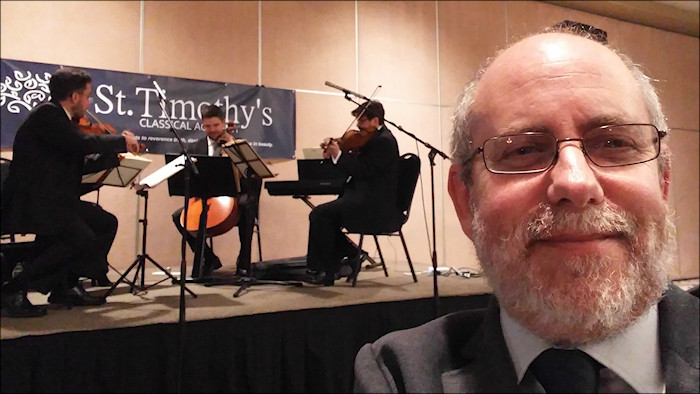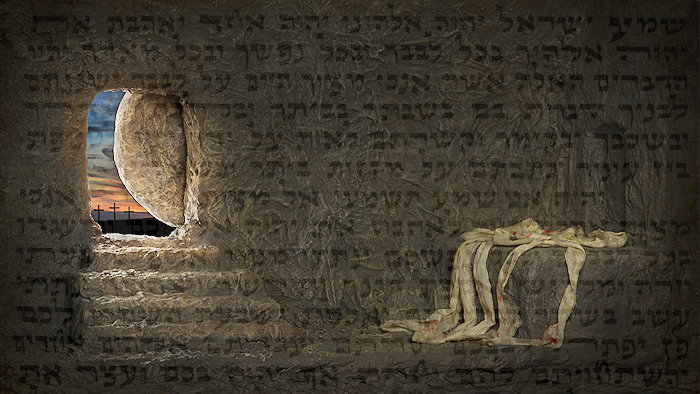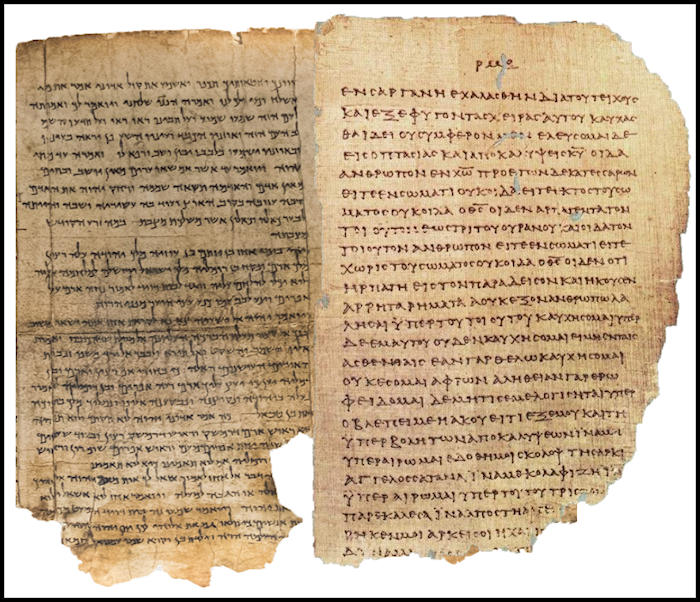Half Empty or Half Full?

Download Audio [Right click link to download]
“What is that smell!” I blurted upon entering the house. “I don’t smell anything,” my wife, Robin, said in keeping with our well-established roles. I am the “noticer,” especially regarding items of the nose. While she (most of the time) gladly lives life in the moment – an extraordinary quality that certainly helped her in the raising of – not to mention homeschooling of – our ten children. We were living in Port Coquitlam, a suburb of Vancouver, British Columbia, at the time. We had recently bought our first house – a unique house for our unique family. The previous owner took a small rancher and added an addition to the top and back, just about tripling its original size. The construction of the addition likely played a part in what was causing the mysterious smell.
I was sure it was coming from the large pantry under the stairs. Robin graciously cleaned it out, making sure to dispose of any possible culprit and carefully cleaned it down. She thought all was fine. But not to my nose. “It still smells.”
It wasn’t until a friend of ours came over and said the smell (“I told you!”) reminded her of dead rodent that we began our quest unto resolution. Thankfully, w e knew someone with considerable expertise in determining the location of said deceased critters, who discovered the culprit. A dead rat had set up his final resting place in the wall behind the pantry in between the original house and the addition.
Since then I have taken great pride in my ability to (literally) smell a dead rat. After all where would the world be without people like me! Most everyone else is cluelessly living life oblivious to the dead rats rotting in the recesses of their lives, while I know what’s lurking behind the wall. But here’s the downside. I tend also to be suspicious, quickly assuming the negative before sufficient evidence comes to light. So different from my wife who tends to assume the positive.
In a perfect world this difference should wonderfully complement each other. But we don’t live in a perfect world, and we are not perfect people. I would find myself frustrated with my wife’s propensity toward the positive, labelling it as denial. I would get so passionate to both identify and fix problems in our relationship and parenting, while I took her lack of alarm to be unhelpful insensitivity to reality (remember the dead rat?).
I remember the time when our eldest daughter was considering moving to Haiti to be a teacher. A small private school had an urgent need and was looking for able souls who were willing to drop what they were doing to help. Since she had spent a few weeks in Haiti years before on an outreach, we were familiar with the challenge of living there. I decided to do some additional research and learned how Haiti is considered to be one of the most dangerous countries in the world. The subject soon came up at our dinner table and I was taken aback at how laissez-faire Robin was taking the possibility of her precious little daughter (who was about thirty at the time) going to what amounted to be a war zone (in my estimation). So it was obviously my duty to inform my overly trusting wife of the potential danger. To which she retorted: “You are trying to scare me, but it’s not going to work.”
Some of you may not understand how threatening such words of confidence are to someone of our upbringing. In our Jewish culture worry is a value. No joke. Traditionally, Jewish mothers viewed their worry capacity as efficacious in protecting their children. I know life doesn’t really work this way, but deep in my family line is the conviction that someone needs to worry! In our case, the roles were reversed. And so it was. Obviously, Mr. Sensitive had to regularly sound the alarm, because Mrs. Happy-Go-Lucky would probably one day burn the house down and wouldn’t know it. (Note: this is being written from my perspective. Robin’s version is different.)
If you are more like me than my wife, you’d probably agree that the world needs more people like us. People who don’t take things at face value, but are willing to pull back the curtain of the phony exteriors of life in the way Dorothy exposed the Wizard of Oz. But if you are like me you may not be quick to see the destructive nature of my suspicious, worrisome tendencies. I certainly wasn’t.
That’s why I didn’t like thinking too much about Bible verses such as James 1:2, which reads: “Count it all joy, my brothers, when you meet trials of various kinds.” This supposed positive relationship towards hardship didn’t seem to jive with my version of life. The joy James speaks of here, I thought, must be some profound sense of inner consolation that sustains the soul in spite of terrible circumstances. It’s the “anchor of the soul” (see Hebrews 6:19) that keeps us from completely drifting away, while on top of the water, where life really happens, we may be going completely crazy. Honest assessment of reality demands not belittling the intensity of our struggles in the real world. James may not agree, however. Some months ago, I decided to look more closely at his use of the word “joy.” To my surprise, it’s the word “chara.” It’s what the shepherds felt having seen the baby Yeshua. It’s the same word for “rejoicing.” It’s like the Hebrew “simcha,” celebratory joy. Not only does James call for celebration he calls for “all” or “pure” joy.
Accepting James’s words set me on a course of discovery. Perhaps my approach wasn’t so godly after all. Maybe my wife had a point. I was raised to believe that having a cold is likely the first step to an early death (I am only slightly exaggerating). While she claims when a person gets sick, they feel lousy for a while, and then get better. Doesn’t she know the statistics concerning the number of deaths from sickness? Maybe she does, because it turns out far more people recover from illness than not. And I hear worrying about it doesn’t promote healing.
My next biblical discovery also surprised me. I was spending a longer than normal time in my daily Bible reading, pondering over Paul’s letter to the Philippians. As I was reading, I would be drawn back to earlier passages, thus reminding me of the context in which he was writing. As I came to chapter four, I was very aware by that time that much of Paul’s directives to this community was based on his concern over significant unnecessary personal conflicts they were having. It was with this in mind that I came upon this familiar verse:
Finally, brothers, whatever is true, whatever is honorable, whatever is just, whatever is pure, whatever is lovely, whatever is commendable, if there is any excellence, if there is anything worthy of praise, think about these things (Philippians 4:8).
Up until then I always thought of these instructions as cautions against impure input along the lines of the old children’s song, “Be Careful Little Eyes What You See.” While something like this may be implied by such words, that doesn’t seem to be Paul’s point. Once I realized that the context of what Paul is writing is relational, then these familiar words take on new (and likely more legitimate) meaning. Paul is here instructing the Philippians and, by extension, us, on how to think about people.
I didn’t realize how much my suspicious tendencies drew me to think negatively about others. I would leverage what I thought was a biblical understanding of human beings to justify suspicion. I was smelling rats where there were none.
This doesn’t mean that we should be naïve. When problems do exist, they should be addressed. The Bible instructs on how to deal with serious issues (see Matthew 7:1-6). But how much energy do people like me put into dwelling on negatives that may not exist? When Paul writes to “think” about things that are true, honorable, just, pure, lovely, commendable, excellent, and worthy of praise, it’s along the lines of considering or, better yet, pondering. This is not an exhortation to have nice little thoughts, but to focus one’s mind on that which is truly good. So much for suspicion and negativity.
How can we love God with all our minds (see Deuteronomy 6:5; Matthew 22:37, etc.) if we allow ourselves to dwell upon negative ‘what-ifs’? What place can worry have if we accept that God causes all things to work together for good (see Romans 8:28)? What have we to fear if God is for us (see Romans 8:31ff); we who are vessels of the Holy Spirit (see 2 Corinthians 4:7ff), who believe in the one who conquered death itself (see 1 Corinthians 15:54ff).
A close friend of mine, whom I worked with for years, was concerned about my tendency toward negative thinking. Soon after my contract with his firm ended, I received a mysterious package in the mail. It was a t-shirt with an illustration on the front. There was no indication at the time who sent it, but I eventually figured it out. There was just a brief anonymous note on the packing slip that read: “It is what you make of it.” The illustration was of a container. At the top end of the container was fire, a tombstone, lightening, and a skull. At the bottom were birds singing, sunshine, a rainbow, and hearts. As I showed it to my some of my kids, one of them said, “It’s a glass half-full/half-empty!” She was right. My friend was trying to make a point.
One of my justifications for negative thinking has been a supposed commitment to being real. For that reason, I have resisted the principle that life is dependent on our attitude. To me, that always has sounded like make-believe. I would rather be real and serious than be comforted by fantasy. But as I have looked more closely at the truth of Scripture, it’s not about simply having a positive attitude disconnected from reality. It’s taking into account who God really is and what he has really done. It’s seeing ourselves from the perspective of our relationship with him. It’s how we should respond to life’s challenges given his overall purposes in general and for our lives in particular.
Therefore, is my glass half-full or half-empty? Well, what does the Bible say about that? According to King David, it’s neither. The man after God’s own heart, who went through so much, said it best: “My cup overflows” (Psalm 23:5).
Scriptures taken from the English Standard Version








